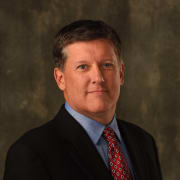Keegan Bradley Says Report of U.S. Ryder Cup Players Being Paid Is ‘All Speculation’

NASSAU, Bahamas — Keegan Bradley is as passionate about the Ryder Cup as anyone, famously having yet to unpack his team gear from the 2012 event in which he was part of a crushing U.S. defeat at Medinah.
Now the U.S. captain for 2025, Bradley said Wednesday he was dismayed at unconfirmed reports concerning payment for players that will be on his team at Bethpage Black.
The seven-time PGA Tour winner and 2011 PGA champion is well aware of the controversial issues that have simmered over the years and agrees with Tiger Woods that funds should be directed to charity.
But he said the Telegraph report of $400,000 payments and the subsequent back-and-forth that has ensued is unfortunate.
“To be honest with you, there’s not much to talk about; these leaks that came out were ... leaks,” Bradley told Sports Illustrated on Wednesday during the pro-am for the Hero World Challenge. “I was shocked to see the leaks, as was the PGA of America. As was everybody involved. There’s been nothing that’s been finalized, done. This is all speculation at this point.
“I was definitely disappointed that someone leaked out that information. That was a shock, for sure.”
Bradley, 38, was the surprise choice of the PGA of America in July to lead the U.S. team next year after Woods turned down the position after a lengthy period to consider taking it.
Woods, who is the host for this week’s event at the Albany Resort, said he was in favor of increased funds going to player charities.
“The Ryder Cup itself makes so much money, why can't we allocate it to various charities?” Woods said. “And what’s wrong with each player, 12 players getting a million dollars and the ability to divvy out to amazing charities that they’re involved in that they can help out? It’s their hometowns, where they’re from, all the different junior golf associations or endeavors that the members are involved in.
“It’s never really been about getting paid, it’s how can we allocate funds to help our sport or help things that we believe in back home, because it’s so hard to get onto that team, there’s only 12 guys. What's wrong with being able to allocate more funds?”
The idea of players getting paid for participation in the Ryder Cup goes back to 1999, which Woods noted. It has always been controversial because the even has been viewed as an exhibition where money is not the issue.
But it does generate enormous sums, so much so that it helps the DP World Tour operate in non-Ryder Cup years. The PGA of America gives 20 percent of its television revenue—approximately $88 million over the life of the current contract—to the PGA Tour, which spreads it among all players via various compensation avenues.
“What Tiger said was 100 percent correct,” Bradley says. “I don’t think the charity dollars have changed from ’99. It’s been the same number. But it’s the PGA of America’s decision. I have to wait and see what they want to do. I don’t have the power to change any of that.
“What I can say is that not a single player has asked for this, has come to me with this. No player was part of this. Zero percent.”
Asked about the controversy that developed in Rome last year where Patrick Cantlay was taunted during the second day because he was not wearing a cap—allegedly as a protest for not being paid—Bradley said “I truly don’t know anything about it. I wasn’t there. Again, a lot of rumors.”
Cantlay at the time and subsequently has denied there was a pay-for-play issue but clearly that has been some concern expressed by various players and representatives behind the scenes about where all the funds are going.
“They are using players’ intellectual properties to make money, and the American players don’t get paid,” said Stefan Schauffele, Xander’s father, to the Times of London last year. “More importantly, this would become a non-issue if all proceeds, net proceeds, from the Ryder Cup were to be donated to common charitable causes. Right now, the American players are asked to donate their time pro bono in the name of patriotism so these organizations can benefit from the profits.
“The PGA (of America) uses this money, and the PGA Tour gets 20 percent that goes into the retirement of every member. The 12 players supposedly need to eat it and their intellectual property gets abused for the benefit of 200 other people. That’s not right.”
Bradley acknowledged the comments of some on the European side, including Rory McIlroy, who expressed no desire to be paid and suggested he’d pay for the privilege to be part of it.
“All power to them,” Bradley says. “The Ryder Cup funds a lot of their tour that guys play on. The Ryder cup is our biggest event, I think. Especially Bethpage Black and all that comes with playing there. It’s going to be a spectacle.”
The PGA of America has declined to comment on the issue of player pay, which the Telegraph reported still needed approval of the PGA of America board of directors.
